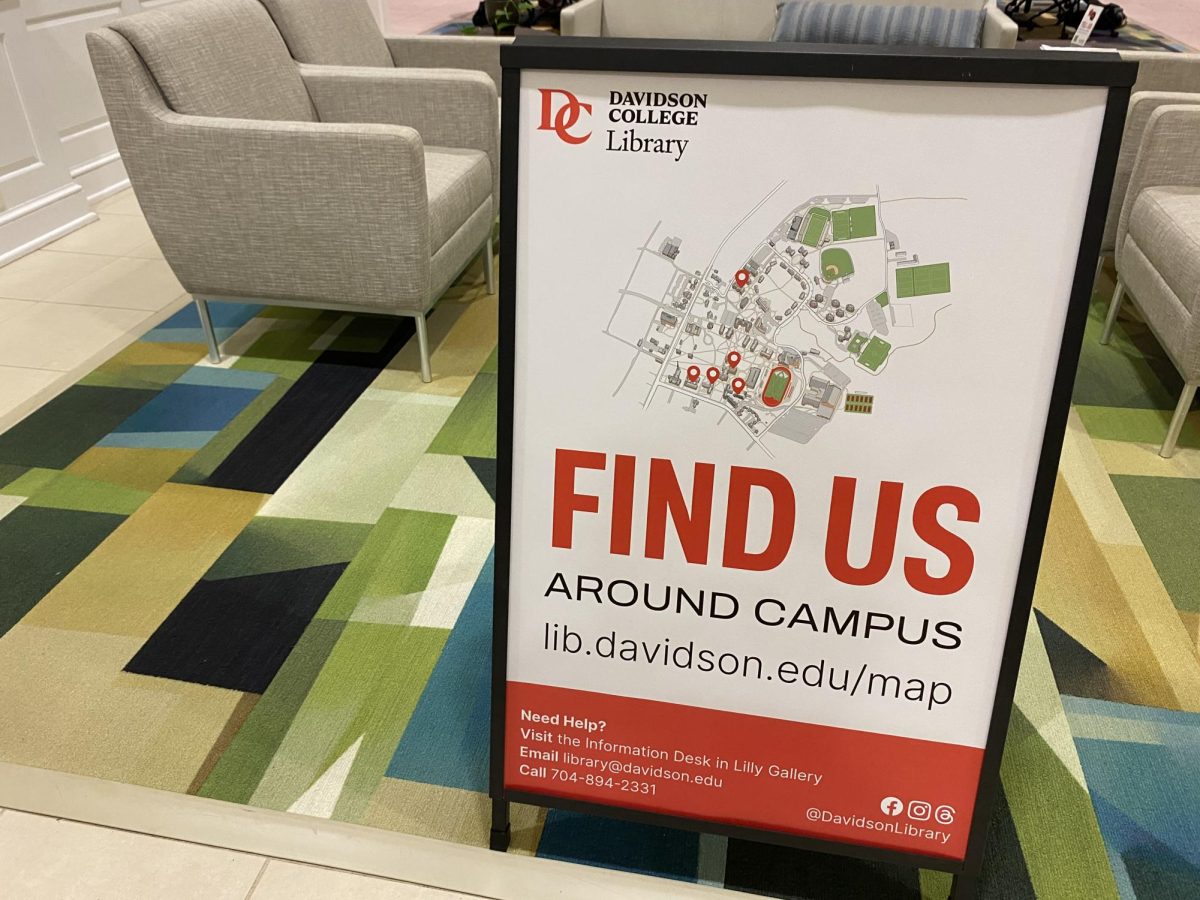
Aidan Marks
Library services are spread across campus while the library is being renovated.
Academic-resource centers are spread across campus this fall due to the ongoing library renovations. The John Crosland Jr. Center for Teaching and Learning (CTL) is adapting to space limitations, and despite concerns about the adjustment, program directors and tutors say they are making the most of their homes for the next two years.
The CTL connects Davidson students with peer-tutoring organizations in a variety of disciplines. These organizations include DATA Cats, library consultants, peer academic coaching, and the multilingual support, math, science and economics, speaking and writing centers. All of their offices were previously located on the first floor of the library.
Rather than occupying one space, Writing Center Director Rebeca Fernandez said space limitations meant the center had to scatter their meeting locations across campus.
“Finding space has been very challenging […] we couldn’t use a single space for everything,” Fernandez said. “We ended up having to divide ourselves up across the campus.”
For Fernandez, the location in which sessions take place is important. The Writing Center prioritizes being a welcoming and familiar space, especially for first-year students.
“I want to make sure that [first-year students are] comfortable seeking out writing support in these different places, and that it doesn’t become an obstacle to them getting the support they need,” Fernandez said.
“We really value that in-person, face-to-face, active learning, [and] asynchronous [meetings] take the writer out of the equation. When the writer’s not present, there’s no dialogue, and there’s no real agency.”
Frank Edong’a ‘26 has been a Writing Center consultant since 2022. His new consultant routine is unfamiliar in his final semester.
“In the past, it used to be easy to socialize and remain in one space and exchange ideas if you had questions, which we do when students come in, [because] sometimes there is something you don’t understand,” Edong’a said.
“So you ask your other consultants, and it was helpful in that regard. Now, that kind of separation makes things a little bit difficult in a way. Of course, you can ask other consultants who are in the same room, but if it’s not an area of expertise for them, it becomes a challenge.”
The Writing Center now operates out of shared spaces like academic classrooms or the lobby of the Carolina Inn, which makes scheduling conflicts common.
“Two weeks ago, in the Carolina Inn, I was there with some new consultants. We then got a Slack message from Dr. Fernandez, and apparently there was an event [then]. The space was reserved for German authors, and we [saw Professor Denham] setting up the space,” Edong’a said. “Luckily, [he] said we could use his office.”
While the Math and Science Center faces similar struggles with space, Professor Andrea Duhon, the center’s director, said her primary concern is ensuring students know that the center is still operating.
“Most of the flow to the library goes through Chambers, not Wall, and so that automatically is going to have a diminishing number of students who are getting serviced through our resources,” Duhon said.
These fears are not unfounded. Duhon has noticed a lack of student engagement with the Math and Science Center.
“Truthfully, I think that our tutors are not used enough. […] We’re trying to figure out how we can be more actively visible to the student population so that they know [they] always have a resource for help,” Duhon said.
Professor Amanda Martinez, Director of the Speaking Center, has embraced its new locale in Chambers. According to Martinez, students’ familiarity with the building is an asset. Still, Martinez and the consultants have trouble making the space feel less like a classroom.
“The agreement was [that] we’re reappropriating Chambers classrooms for tutor centers and drop in hours at night. But we cannot alter the room in any way,” Martinez said.
As tutoring centers adjust to their new homes for the next two years, Martinez finds hope in the promise of a new library.
“[I] have a bit more of a positive attitude because we felt included in the decisions and we also understood that everybody has this collectivist feeling of, ‘We all have to live with some changes but the end result is we’re gonna get this awesome new library,’” Martinez said.